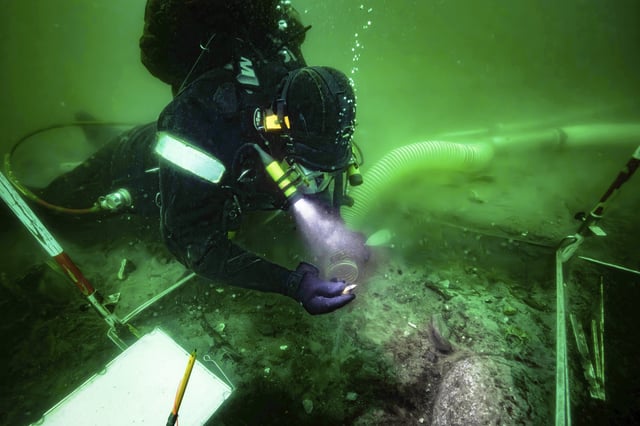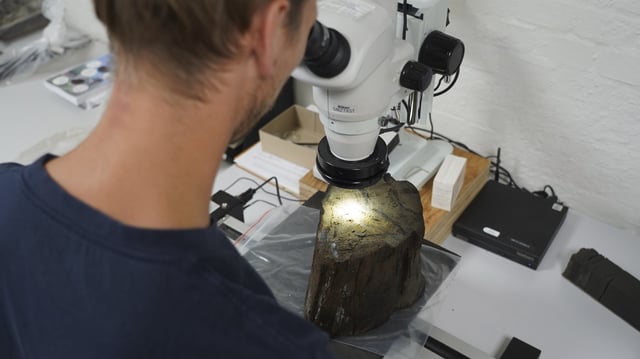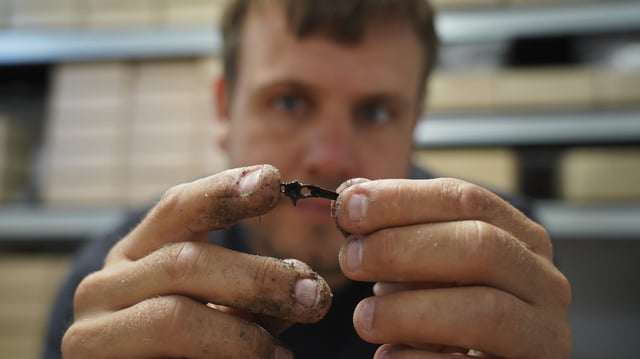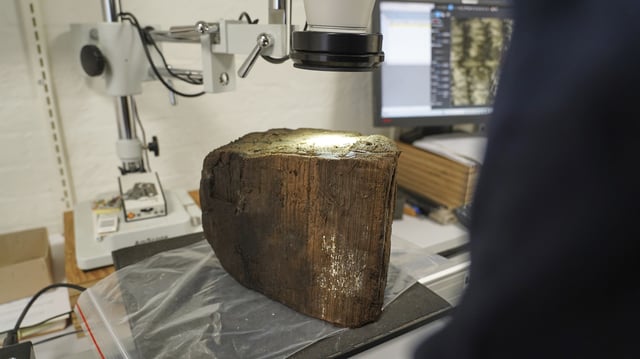Overview
- Divers working about 8 meters below the surface in the Bay of Aarhus opened roughly a 40-square-meter trench at a Mesolithic shoreline site.
- Early finds include animal bones, stone tools and arrowheads, a seal tooth, and worked wood preserved in oxygen-poor seabed sediments.
- Analysis of submerged tree stumps aims to refine timelines that indicate sea levels were rising by about 2 meters per century around 8,500 years ago.
- The excavation is part of a €13.2 million, six-year European Union project involving Moesgaard Museum, the University of Bradford, and Germany’s Lower Saxony Institute for Historical Coastal Research.
- Further fieldwork is planned off Germany and at two North Sea locations to map additional submerged landscapes before offshore infrastructure expands.



